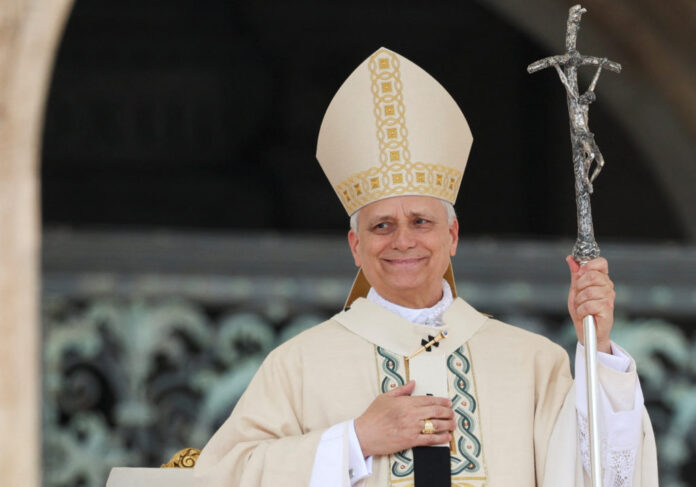
Pope Leo XIV presides at a prayer vigil for the Jubilee of Consolation, and invites everyone who has experienced hardship or loss to embrace faith in Christ, so that pain may not lead to violence but forgiving love.
Around 9,000 pilgrims gathered in St. Peter’s Basilica on Monday evening to take part in a prayer vigil for the Jubilee of Consolation.
The special event of the Holy Year was dedicated to everyone who has endured moments of particular difficulty, bereavement, suffering, or hardship.
Pope Leo XVI led pilgrims in the Liturgy of the Word, which included two testimonies from women who have suffered an especially traumatic loss of a loved one.
Testimonies of reconciliation amid pain
Diane Foley, mother of the late American journalist James Foley, told her story of faith and her reconciliation with a member of the so-called Islamic State who killed her son.
He was serving in Syria as an independent conflict journalist in 2012 when he was kidnapped, starved, tortured, and publicly beheaded in August 2014, because he was an American journalist and a Christian.
Ms. Foley shared her struggle not to become bitter but to turn to God despite her anger. She looked to Mary, whose son was also killed despite His innocence, saying the Blessed Mother’s example taught her to walk in faith and trust in God.
After two of the jihadists from the so-called “Beatles Cell” were arrested and brought to trial in the United States, Ms. Foley requested a meeting with Alexanda Kotey, one of the men who killed her son. During their meeting, Mr. Kotey expressed “much remorse,” said Ms. Foley. “God gave me the grace to see him as a fellow sinner in need of mercy, like me,” she said.
Diane Foley shares her testimony of pain and forgiveness
Diane Foley shares her testimony of pain and forgiveness (@Vatican Media)
Lucia Di Mauro Montanino shared the pain she and her daughter endured after her husband, a security guard, was murdered by a group of young men in the Italian city of Naples.
A few years after the youngest of the group—17-year-old Antonio—was sentenced to 22 years in prison, he asked to meet Ms. Di Mauro and ask her forgiveness.
“In front of me I found a boy who was trembling, who was crying, who was asking forgiveness, and the only possible thing was a long embrace,” she said. “There I felt within me the desire and the possibility to transform pain into something new.”
When Antonio was released under supervision 14 years early, Ms. Di Mauro accompanied him and his new family “on his winding path of rebirth.”
“Reconciliation requires an active encounter, and it is what allowed Antonio to build a new life and me to make sense of my husband’s death,” she said.
God’s closeness in times of darkness
In his address, Pope Leo reflected on humanity’s need for comfort and consolation amid the many wars and personal losses people endure every day.
“In times of darkness, even when all outward appearances suggest otherwise, God does not abandon us,” he said. “Rather, it is precisely in these moments that we are invited more than ever to place our hope in the closeness of the Savior who never forsakes us.”
The Pope noted that those who suffer look around for someone to offer some form of consolation, but often find no one.
At times, he added, tears are the only consolation we find, a consolation of which he said we should never be ashamed, since they express our weak and tested humanity’s silent cry.
We may find ourselves questioning the nature of evil and how God can let evil exist. Yet, said the Pope, we should turn to Sacred Scripture to help us journey from questioning to faith.
If we turn our questions into pleas and supplications for justice and peace from God, we turn our hope to Jesus, who is the bridge between God and humanity.
“Consolation is found when faith stands ‘firm and stable,’ where it was once ‘unformed and hesitant’ like a boat in a storm,” said Pope Leo. “Where there is evil, we must seek the comfort and consolation that can overcome it and give it no respite.”
Forgiveness keeps pain from turning to violence
The Pope noted that the testimonies of Ms. Foley and Ms. Di Mauro Montanino reveal the truth that “pain must not give rise to violence,” since love can conquer hatred.
Forgiveness, he said, offers us a foretaste of the Kingdom of God on earth, breaking the cycle of evil and establishing justice grounded in God’s mercy.
“The Church, some of whose members have unfortunately hurt you, kneels with you today before our Mother,” he said. “May we all learn from her to protect the most vulnerable with tenderness!”
Pope Leo XIV invited everyone to allow God to comfort us in our pain, rather than relying on our own strength of will.
“Our loved ones who have been separated from us by sister death are not lost and do not fade into the void,” he said. “Their lives belong to the Lord, the Good Shepherd, who embraces them and holds them close.”
In conclusion, the Pope appealed for an end to the crushing weight of violence, hunger, and war that are causing immense suffering to entire populations.
“Even in the midst of so much arrogance,” said Pope Leo, “we are certain that God will inspire hearts and hands to provide help and consolation: peacemakers who can comfort those who are in pain and sadness.”














